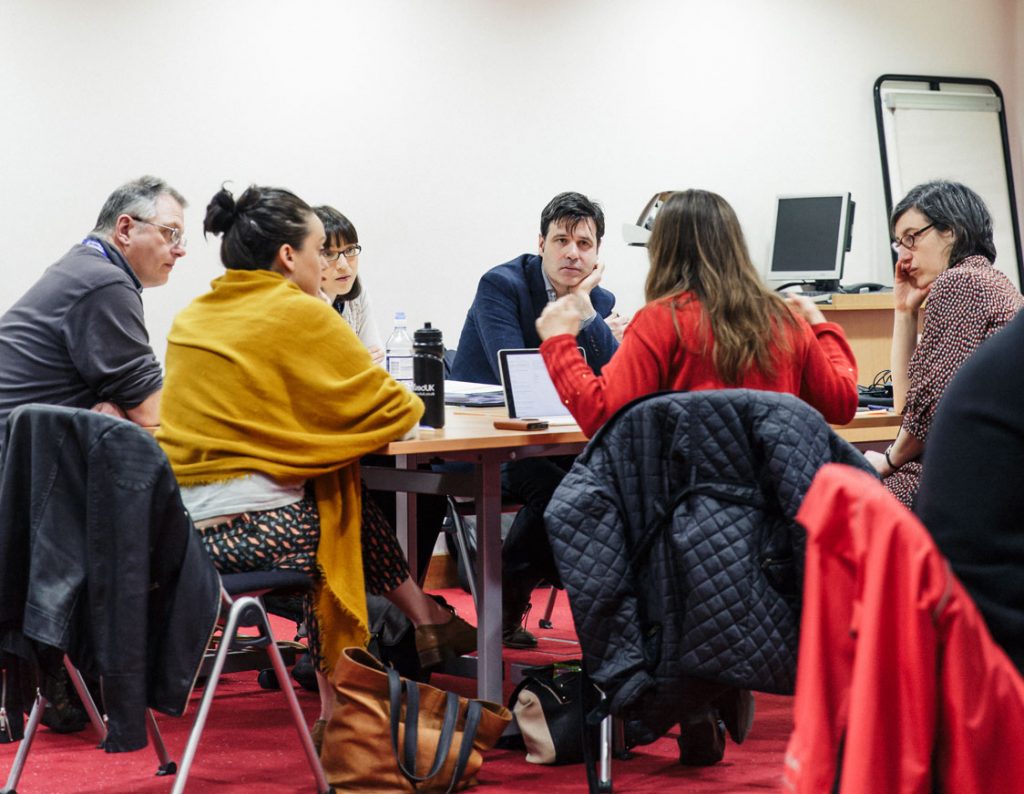The Leicester Learning Institute (LLI) hosted what proved to be a lively and engaging ‘Focus on’ event, from Tuesday 12 to Thursday 14 April. Tuesday’s sessions focused on assessment and feedback…
It can often seem difficult to move away from tried and tested methods of assessment, such as exams and essays, especially when student numbers are increasing and time taken to plan, prepare and mark assessments inevitably increases as a result. But there are many valuable implications of transforming how you assess students, and ways of assessing large groups in time-efficient ways.
Getting the right balance between formative and summative assessment allows assessment to be fully integrated with the learning process, and provides increased opportunities for student engagement. One size doesn’t fit all, and different students and different disciplines will benefit from different forms of assessment. Using varied and innovative assessment methods will improve inclusivity, and authentic forms provide closer links to the workplace.
During the day, staff contributed their ideas about how they have used different forms of assessment. For example, Zoe Knox in the School of History explained how students were asked to work as a group to produce a podcast about an aspect of modern European history. This type of assessment enabled them to develop a range of transferable skills such as project design and management, team work, oral presentation and technology skills, all of which are valued by employers or arts and humanities graduates. Students were very positive about creating the podcasts, and were able to think critically about issues of communication, technology and audience. A ‘trade fair’ over lunch saw colleagues from seven different departments share their examples of authentic assessment – from mooting to research bids (the latter presented by students who had worked on the assignment).

Steve Rooney and Marta Ulanicka (LLI) ran a session on the importance of, and opportunities for, dialogue between staff and students when it comes to assessment and feedback. Drawing on relevant research and case studies of practice from a range of University of Leicester departments, the session invited participants to discuss ways of developing better shared understandings of the expectations of HE-level study as well as exploring practical ways of developing these understandings.
On the basis of these discussions, participants were invited to come up with ideas for how opportunities for dialogue could be built in to their own current practices, as well as some of the challenges in doing so. These were subsequently shared with participants. In addition the LLI website contains further resources for academics and departments to adapt to their own contexts.
The LLI will be working closely with departments in coming months to ensure opportunities for dialogue inform the changes to curriculum departments will be making.
Assessing large groups
Alex Patel, from the Leicester Learning Institute, looked at assessment approaches for large numbers of students. One idea may be to create time within classes for assessment and feedback by setting assignments that can be completed and marked in class. This also means students can receive immediate feedback. Self- and peer-assessment could be used, meaning that students can be involved in evaluating their own work. This can be more time-efficient, as well as developing students’ critical thinking, confidence and ability to work as part of a group.
Leicester Learning Institute works closely with colleges and departments in enhancing assessment and feedback, as well as curriculum design more generally.
Please contact us at lli@le.ac.uk if you would like any support.


 Subscribe to Rachel Tunstall's posts
Subscribe to Rachel Tunstall's posts
Recent Comments